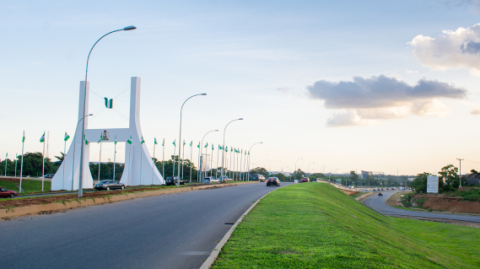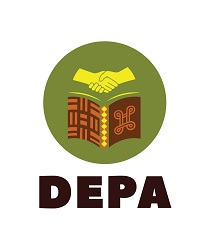
Abuja Peace Clubs Project (Part one)
The Peace Clubs Project, an initiative of Education Plus, a fully registered Nigerian NGO, was implemented in Abuja, Nigeria. The project was conducted in two government-run Senior Secondary Schools located in the catchment area of Education Plus, spanning from Apo Resettlement Area to Wassa, Abuja. The project was funded by DEPA/PADEAP and was part of Education Plus’s Teacher Training programme.
Context
Nigeria operates a 6-3-3-4 education system, which translates to
- 6 years of Primary School education,
- 3 years of Junior Secondary School education,
- 3 years of Senior Secondary School education, and finally
- 4 years of first-degree education at university.
Under Nigeria’s Universal Basic Education Policy, Primary school education and Junior Secondary School education are compulsory by law. However, Nigeria has the largest out-of-school population in the world, starting from the Primary school level. The Northern states in Nigeria, including the Federal Capital Authority Abuja where the two senior secondary schools are situated, have worse education attendance rates than the Southern states of Nigeria.
Most students attending state-run schools come from the lower socio-economic segment of Nigeria’s population. Many state-run schools are overcrowded, poorly staffed, under-resourced, and many of the buildings are in various states of disrepair. Furthermore, many states do not pay staff salaries on a regular basis, so it is common for teachers in state-run schools to be owed salaries for months.
The schools
The two schools involved in the project were Apo Senior Secondary School and Kabusa Senior Secondary School. Both schools are large, with over 2000 students on their attendance roll, ranging mainly from ages 15 to 20+. Neither of the schools had a functioning Peace Club prior to this project.
The process
Peace Facilitators training
The training took place over three days in April and included teachers from the two senior secondary schools and the two accelerated
learning hubs run by Education Plus. The following teachers were chosen from the schools:
- Apo Senior Secondary School – Eno Akpo John (female) and Yusuff Juwon (male)
- Kabusa Senior Secondary School – Nkem Egbuedike (female) and Magnus Ologwu (male)
The training comprised of the following:
- Day 1: Training on the concepts of violence, conflict, and peace and how they are related.
- Days 2 and 3: An experienced community artist was brought in to give the participants lessons on how to use painting/design work, role play, spoken word, poetry, song, and dance to explore the topics of violence, conflict, and peace with their students.
Themes/Structure of the Peace Clubs
The Peace Clubs ran for three months from the beginning of May to the end of the school term in late July. The themes for each month were as follows:
- May: Using painting and designing posters to explore the concept of violence and how to reduce it.
- June: Using role play to explore the concept of conflict and how to do it constructively.
- July: Using spoken word, poetry, songs, and dancing to explore the concept of Peace and Justice.
Monthly plan of the Peace Club
The Peace Clubs held once a week for one hour on the day the school held their clubs day. For the first week, the teachers introduced the theme and in small groups, students discussed what they felt about it. In weeks two and three of each month, the students practiced the agreed art methodology to come up with activities that they felt matched the monthly theme. On the last week of the month, the students displayed/performed activities they had worked on to all the students in their school at a whole school assembly.
Monthly whole school assembly presentation
The whole school assembly presentation gave the students of the peace club the opportunity to talk to their peers on how they feel adolescents can address and tackle the issues of violence and conflict in their lives and how peace can be achieved.
Monthly teachers feedback and monitoring sessions
Three monthly Peace Facilitators meetings were held at the beginning of each month to give feedback and to receive further training on the art methodology.
A few unintended consequences
From the meeting in July, several unintended consequences were seen in the schools. These included:
- In one of the schools, the peace club students formed themselves into groups who during the break times helped students solve fights and disagreements.
- On a few occasions after the whole school assemblies, other teachers in the school asked the Peace Club students to come to their classes to further explain what they presented.
- In one school, there was some complaint by students attending other clubs as to why they were not getting refreshments like the students of the Peace Club.
- A couple of Year 3 students indicated that they would have liked to receive training on how to set up some form of peace activity in the universities and institutes of higher education they would be attending in October. They agreed that they would have benefited from Peer Mediation training.

